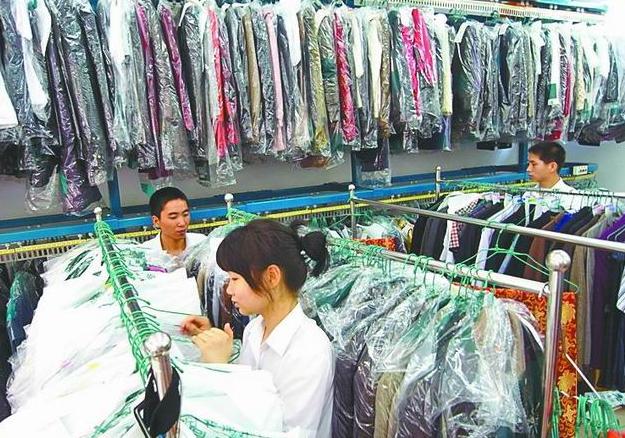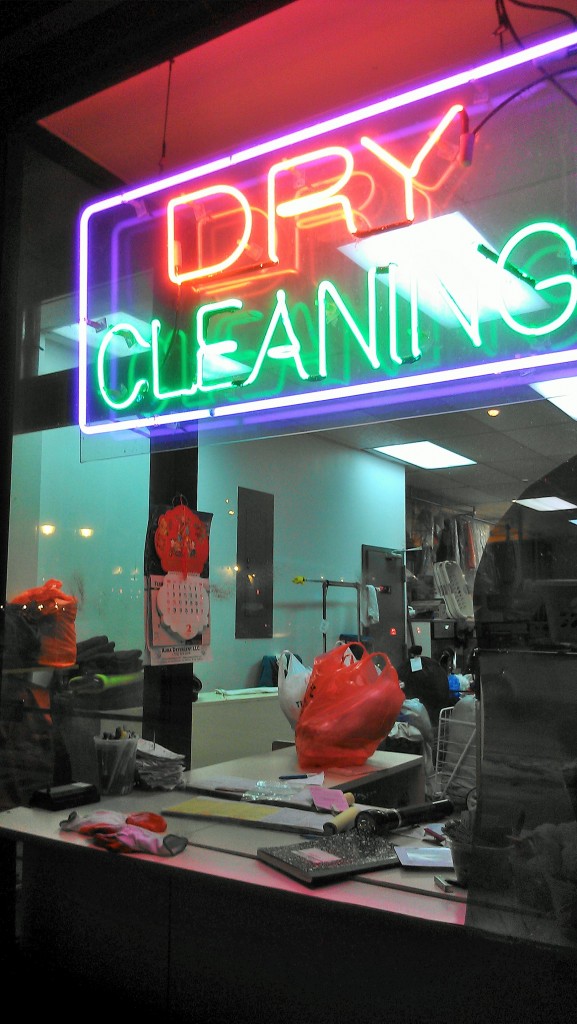For a learner of Chinese, New York City is a fortuitous place to end up for a job. Especially the borough of Queens, where I currently call home.
Within a quarter mile walk of my apartment, there are at least eleven shops run by people who speak Chinese as a first language: four restaurants, three “99 cent stores”, a street stand, a produce store, a hair salon, and a laundromat.
These establishments all more or less sell products or services needed for daily life, so I naturally patronize them on a regular basis. Whenever I come to the register, the Chinese-speaking owners or staff are always glad to speak Mandarin with me.
In fact, quite a few shopkeepers give me a smile whenever I come in. One restauranteur even remembers my voice over the phone when I order Chinese!
I’ve often wondered if this extra attention is similar to that which a foreigner (of non-Chinese heritage) receives when in China for speaking Mandarin with some degree of fluency. There is a certain novelty about an “out-group” person speaking the “in-group” language that causes native Chinese speakers to take notice—even if this novelty is fast diminishing as hoards of non-Chinese learn Mandarin.
But there may be something unique about the interaction with native Chinese speakers in America. It could be described as warmth—a bigger smile, perhaps.
Maybe it’s a matter of identity. While in China, I am both culturally and nationally an outsider. But in the U.S., the person on the other side of the cash register is usually an American citizen or at least a green-card holder. We may share different sub-cultures, but we share an American civic identity. We are neighbors.
Not only can speaking Chinese in NYC help strengthen bonds in one’s neighborhood, it can also resolve small crises.
For example, a couple of weeks ago, I went to the laundromat to pick up our clothes. My wife and I had just begun using this laundromat, and I was not yet well-acquainted with the owners. They are an older couple from Hong Kong who primarily speak Cantonese. I was not sure if they understood Mandarin, especially because many of their generation from Hong Kong do not.
The wife was working when I walked in. I handed over my receipt, and she grabbed my laundry bag and took my wife’s coat off the hanger. She was speaking Cantonese on the phone while doing all of this, and we didn’t exchange any words. When she looked at the receipt figure, I noticed the owner pause for a moment. She didn’t say anything, though, and proceeded to give me my change.
When I arrived at my apartment around the corner, I set the laundry bag on the floor and began to take off my coat. I told my wife that the laundromat had apparently dry cleaned the coat even though it was machine washable. Then it occurred to me: I didn’t pay an extra fee for dry cleaning! This might have frustrated the owner.
I certainly didn’t want to leave a bad impression on my first visit, so I slipped my coat back on and rushed back over to the laundromat. The owner was still on the phone and folding clothes when I walked in. Noticing my urgency, she pulled down the phone, a tense look on her face. Not knowing whether Mandarin might cause a cultural faux pas, I proceeded to use English to ask her if she dry cleaned the coat.
She took a moment to register what I asked and then answered, “Yes. Dry cleaned.”
I asked, “What is the fee then? I need to give you extra money.”
That sentence apparently confused the owner. Her brow wrinkled. I asked again with a slightly different combination of words, but the worry on her face only grew deeper. In retrospect, my rush may have caused the words to pour out faster than necessary.
I felt bad that I was causing her distress over this. So I went for it: “妳会讲国语吗?”(Can you speak Mandarin?)
She said in southern Chinese Mandarin accent, “Yes, I can.”
Wanting to resolve the mounting tension, I quickly replied, “You dry cleaned this and I didn’t give you an extra fee.”
It was like a pinched nerve had suddenly and completely dissipated. The owner’s face relaxed, a big smile formed, and she responded with the typical vigorous politeness I’ve become accustomed to in the Chinese culture: “没关系啊,不用啊.” (Don’t worry about. No need!)
My reaching for my wallet was met with increased amplitude: “Don’t worry about it! Give it to me next time.”
“Okay, next time,” I surrendered.
A week later, I returned to the laundromat to pay the new bill. This time, the husband and the wife were both at the front of the shop, and the husband was cashing me out. I put ten dollars more than the bill on top of the receipt. As the husband reached for change, I by-passed the English stage and directly said in Chinese, “No need. This is the dry cleaning fee from last time.”
With this, I had entered “the dance”. The husband and wife immediately and resolutely responded in protest, “不用客气啊” (Which I like to translate in my head as, “Oh, come on! What are you doing!” But literally, it means “No need for niceties/politeness”.)
This was my second rebuked attempt to pay them back. But two attempts isn’t sufficient. Only three “no’s” equals a full and complete refusal. So I pushed the money across the table toward the husband.
He reacted with amazing speed: snatching a ten-dollar bill, slipping around the counter, and shoving the bill into my hand, all within a split second, and all while saying, “别这么客气啊” (Literally: “Don’t be so polite!” Colloquially: “You’re going to take this money back!”)
I’ve been in or seen enough bill disputes between friends in China to know that if I went for it again, there was a 50 percent chance I’d be in a physical shoving match with this nice man, so I relented and thanked the couple profusely.
After a chatting for a minute, I said adieu and headed out the door with a glow of contentment: no matter what else happens in my career, experiences like this have made those bitter years of Chinese language study completely worth it.



